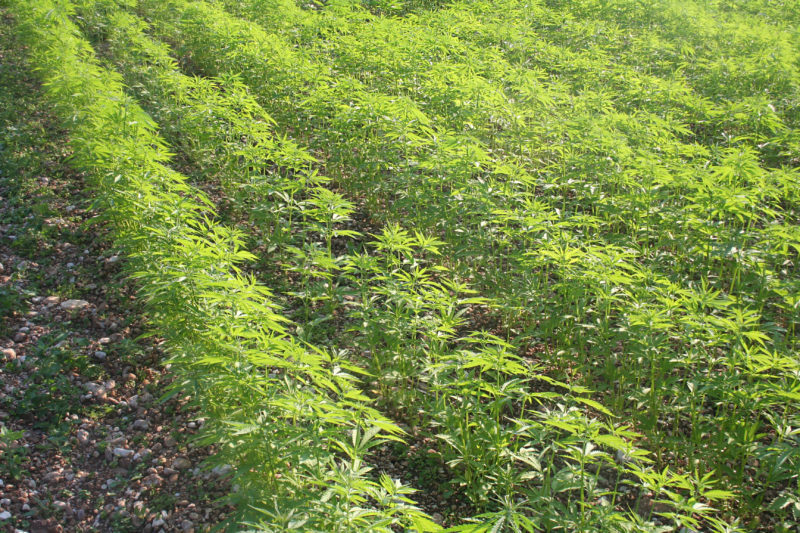“We are seeing hemp cultivation dramatically expand in the U.S. in 2019, with over quadruple the number of acres licensed in hemp compared to last year and the addition of 13 more states with hemp programs,” said Eric Steenstra, president of Vote Hemp, in a press release. “Now that we have lifted federal prohibition on hemp farming, it’s time build the infrastructure and expand hemp cultivation and the market for hemp products across the country so that all can reap the benefits of this versatile and sustainable crop.”
Highlights noted in the release
- The number of acres of hemp licensed across 34 states totaled 511,442 in 2019—more than quadruple the number of acres licensed from the previous year.
- State licenses to cultivate hemp were issued to 16,877 farmers and researchers, a 476% increase over 2018.
- States that license processors reported 2,880 processing licenses, which is an increase of 483% over 2018. Vote Hemp said several key states including Colorado do not license processors so processing capacity is actually significantly higher.
- 46 states have defined industrial hemp as distinct and removed barriers to its production, which Vote Hemp said enables these states to take immediate advantage of the industrial hemp research and pilot program provision, Section 7606 of the Farm Bill. The states are: Alabama, Alaska, Arizona, Arkansas, California, Colorado, Connecticut, Delaware, Florida, Hawaii, Illinois, Indiana, Iowa, Kansas, Kentucky, Louisiana, Maine, Maryland, Massachusetts, Michigan, Minnesota, Missouri, Montana, Nebraska, Nevada, New Jersey, New Mexico, New York, North Carolina, North Dakota, Ohio, Oklahoma, Oregon, Pennsylvania, Rhode Island, South Carolina, Tennessee, Texas, Utah, Vermont, Virginia, Washington, West Virginia, Wisconsin, and Wyoming.
- 230,000 acres of hemp will actually be planted.
- 50% to 60% of that 230,000 will be harvested due crop failure, non-compliant crops and other factors, resulting in 115,000-138,000 acres of harvested hemp.
Related: UNPA and HIA Work to Advance Hemp Extract Research, Safety and Quality Standards CRN Opens Membership to Companies Marketing CBD, Hemp Extract
Benefits of hemp crops Vote Hemp pointed to several benefits of hemp crops, including:- Hemp seed is a rich source of Omega-3 and Omega-6 essential fatty acids (EFAs), providing both SDA and GLA, highly-digestible protein, and naturally-occurring vitamins and minerals, such as vitamin E and iron.
- Hemp seed is excellent source of dietary fiber and is a complete protein, containing all 10 essential amino acids, with no enzyme inhibitors, making it more digestible by the human body.
- Hemp bast fiber has shown potential to replace graphene in supercapacitor batteries, which could then be used to power electric cars and handheld electric devices and tools.
- Hemp fiber can be used to create environmentally friendly packaging materials, and hard bio-plastics for use in everything from airplanes to car parts.
- Hemp houses are on the rise thanks to hempcrete, a material that Vote Hemp says is energy-efficient, non-toxic, resistant to mold, insects and fire and has many advantages to synthetic building materials, lumber and concrete.










